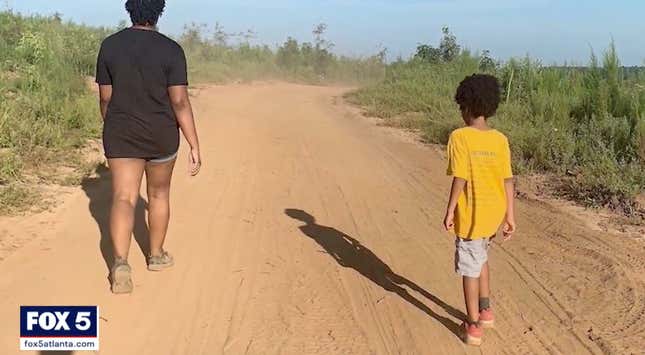
Overwhelmed by the high-profile killings of Ahmaud Arbery, Breonna Taylor and George Floyd this year, Ashley Scott and Renee Walters were determined to find a refuge for themselves and their families. A place where they could build, create generational wealth, and a legacy.
They believe they’ve found such a place—on 96 square acres of land in central Georgia. They plan on naming their community, “Freedom.”
Walters and Scott are the president and vice-president of the Freedom Georgia Initiative, an LLC that pledges to “create a thriving safe haven for Black families and our allies that brings value and gives back to the community.”
According to their website, they also want the town to be a model for “self-sufficiency, environmental sustainability and cooperative economics.” Thus far, 19 families will be part of the community, collectively purchasing the plot of land located 130 miles outside of Atlanta.
“It’s impossible to have anything exclusively Black because our families are integrated,” says Scott said in a recent interview with CNN. “We are an integrated, tolerant and diverse community even as Black people, so we don’t intend for it to be exclusively Black, but we do intend for it to be pro-Black in every way.”
For her and Walters, the town is “a piece of legacy. We’re hoping to create legacy.”
Their endeavor has attracted a lot of attention, warranting write-ups from local news outlets, as well as CNN and TMZ.
Scott told WMAZ 13 that the Freedom Georgia Initiative is still a year or two away from building homes on the land. Right now, the group is sourcing vendors and recreational activities and amenities for the area. According to TMZ, the project has already garnered interest from Hollywood: TV production companies have reportedly reached out to document the community’s development.
There is a long history of Black towns and communities, also known as Freedmen’s towns, across the United States from California and New Mexico to Oklahoma and Mississippi. Among the oldest is Mound Bayou, Miss., founded in 1887 and designed to be a self-sufficient community where residents did not have to encounter whites.
But that insulation didn’t always mean protection. Black communities were still targeted for violence by white vigilantes (as was the case with Greenwood, Okla.—a 40-acre division of North Tulsa that became known as “Black Wall Street”). For other towns, historic divestment and economic and environmental hardship have made their futures uncertain, as is the case with Princeville, N.C. The town is the first incorporated community in the U.S. but has been historically underfunded, leaving it particularly vulnerable to devastating floods.
Scott is more than aware of this history. In an op-ed penned this past August about the Freedom Georgia Initiative, Scott, who works as a real estate agent, wrote, “It was clear to me that developing new cities was necessary because these old ones, even with strong Black leadership, have too many deep-rooted problems.”
For now, the land remains a place for the families to get away from it all and be “authentically Black, unapologetically Black and not be judged,” Scott told Fox 5 Atlanta. For her, Freedom is both inheritance and legacy.
Recalling the moment she and Walters first encountered the land, Scott told WMAZ they knew right away it was meant to be.
“When we stepped on the ground that we ended up purchasing, it was as if the ancestors themselves said, ‘This is your land.’”

